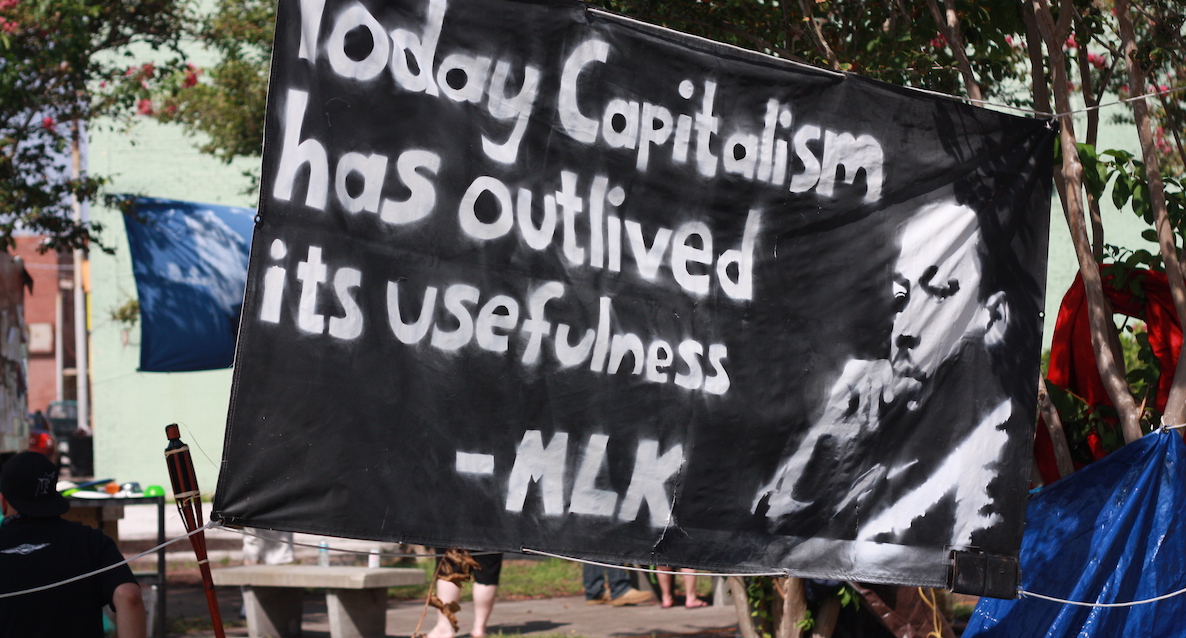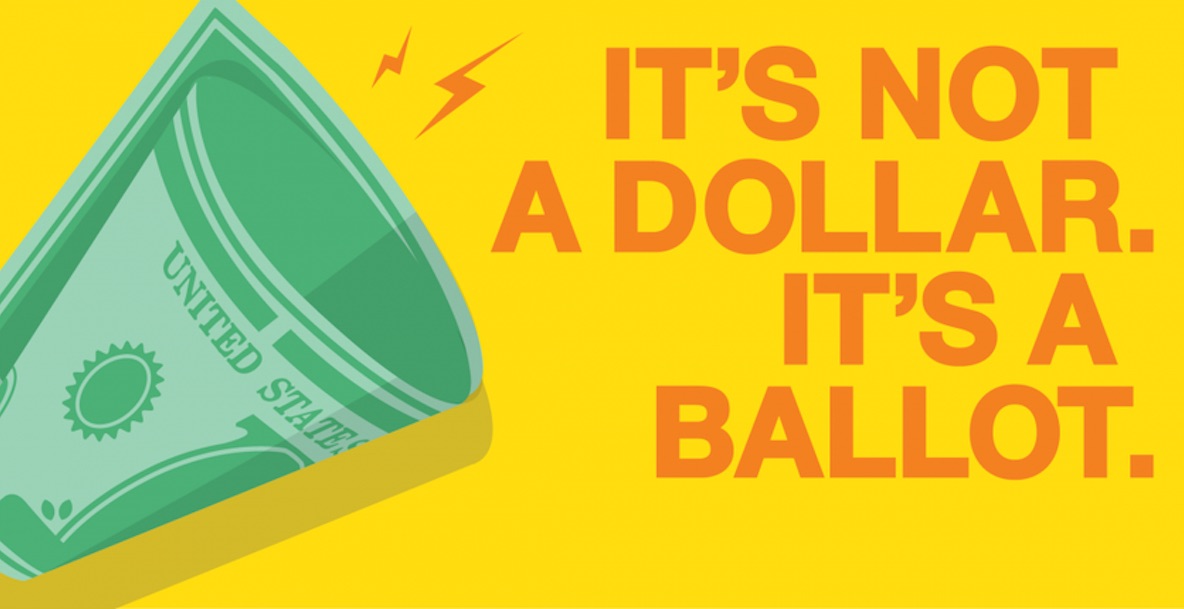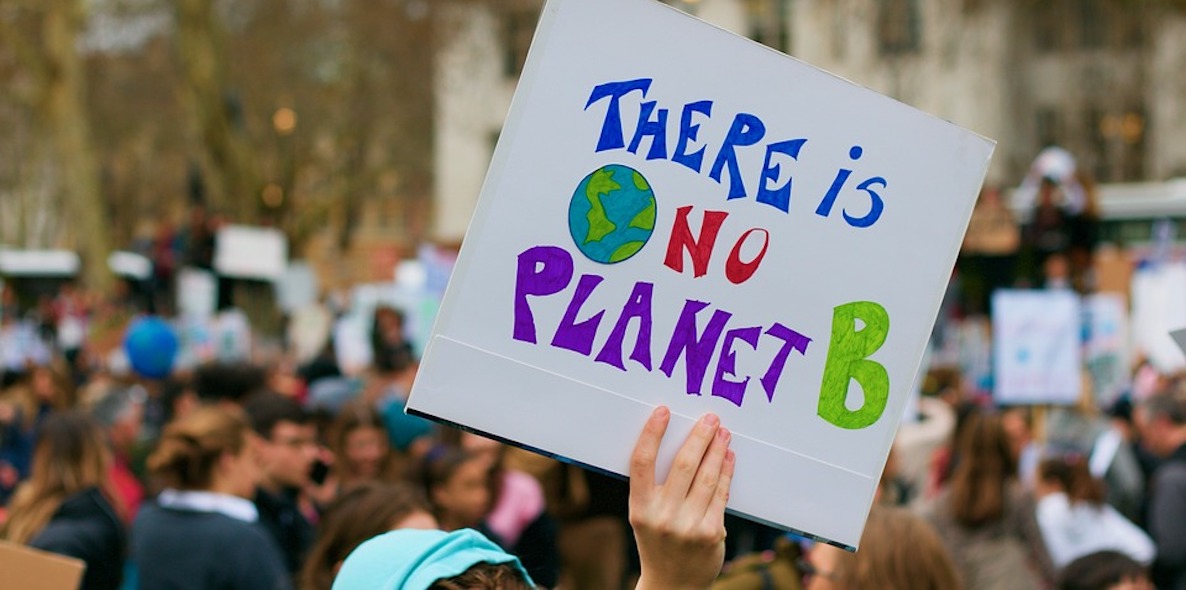When it comes to climate change, some believe we are witnessing a seismic shift in institutional power, driven by what people are calling the “existential threat from climate change.” But I’m not so sure.

The US was one of 132 nations to sign off on a recent UN report that warned of the likely imminent extinction of one million species. A representative said our planet’s loss of biodiversity is “eroding the very foundations of our economies, livelihoods, food security, health and quality of life worldwide.”
In short, the report says that we are killing the very things necessary for our own survival.
But nations need to be doing more than just signing off on studies—that goes especially for the US, as one of the most prolific polluters of this planet. We need policies that align economic incentives to drive necessary change.
For that to happen, I believe companies must lead where policymakers have failed. Like states and parliaments, business leaders should declare a climate emergency.
Companies must lead where policymakers have failed. Like states and parliaments, business leaders should declare a climate emergency.
Some business leaders are responding to this climate emergency—some in impressive and ingenious ways. Many of these organizations are certified B Corporations, or B Corps, whose corporate models are premised on using “business as a force for good.” Since co-founding B Lab in 2006, my colleagues and I have helped cultivate a global community of nearly 3,000 businesses that agree to a legal requirement to consider environmental interests when making decisions.
B Corps must exhibit verified social and environmental performance, public transparency, and legal accountability to balance profit and purpose.
![]()
That last bit is the key to addressing our climate emergency: B Corps have legally expanded their fiduciary duty of care to include care for the environment. It is no longer optional; it is a legal requirement.
But here’s the rub: While B Corps as a whole can be better for the environment than many other companies, their efforts are not nearly enough. After all, there are only a few thousand of them. So, what is the role of business leaders when individual leadership isn’t enough?
We need a collective voice and collective action by business leaders across industries, across sectors, and across geographic boundaries. We need businesses to influence our governments “to act as if the house was on fire,” in the words of 16-year-old Swedish climate activist Greta Thunberg.
![]()
Some companies are on the right track, building their credibility as advocates by first taking bold action themselves. Earlier this year, Allbirds, the popular footwear company that recently reached a reported $1 billion valuation after raising more than $77 million, announced it would become carbon neutral in 2019. It plans to reach this goal by initially purchasing carbon offsets, then combining this with a self-imposed internal carbon tax, meaning it will charge itself a fee for the carbon emissions it creates, set at $0.10 per shoe.
The money generated from Allbirds’ internal carbon tax will fund emissions-reducing projects, such as planting trees that capture and store carbon, and building wind energy plants to replace dirty fossil fuel energy. These efforts will match every ton of carbon that Allbirds emits throughout its supply chain and business operations.
Popular footwear company Allbirds is combining the purchase of carbon offsets with a self-imposed internal carbon tax, meaning it will charge itself a fee for the carbon emissions it creates.
This follows the lead of fellow B Corps: Ben & Jerry’s set a $10-per-ton carbon tax on its emissions to fund various sustainability projects in 2015. Eco-friendly cleaning products company Seventh Generation set a $12-per-ton tax on its emissions around the same time. Some large (non-B Corp) public companies have adopted an internal carbon tax as well, such as Disney, Microsoft, and Shell.
![]()
But in order to be truly effective, a carbon tax needs to be a central strategy, supporting the business vision as a whole, rather than a side project. The most visionary and courageous business leaders aren’t afraid to make the hard choices. They aren’t afraid to shift their entire business model in order to support healthy ecological, social, and economic systems on which we all depend. If a business is dependent upon finite resources, then it must look at how it changes what it does, not just how it does it.
Patagonia was disturbed by the rampant waste in the fashion and apparel industry, so it created its Worn Wear program, and trained existing staff to repair clothing instead of producing more items to replace ones that were ripped or damaged. The company is now moving into food, because it believes regenerative agriculture is necessary to achieve its newly-stated company mission: “Patagonia is in business to save our home planet.”
Dr. Bronner’s is another business that is putting the environment first. The more than 70-year-old family-owned company hopes to be around for at least another 70 years, and has built a product, a business model, and supply chain rooted in regenerative principles for this purpose.
![]()
Each of these models alone is impressive. But what is even more influential is when companies combine resources. Both Dr. Bronner’s and Patagonia are doing just that, collaborating to drive an industry-wide shift through a new initiative, Regenerative Organic Certification.
Rethinking entire business models is necessary. But it’s not sufficient. Given the state of our climate emergency, it’s not enough for individual companies to buy offsets, put solar panels on roofs, create internal carbon taxes, or even transition to regenerative agriculture.
By declaring a climate emergency, business leaders can not only justify to shareholders the necessity of changing their own practices and business models, but also, and more importantly, create the context in which policymakers can align incentives so that the capital markets reward instead of punish sound, long-term planning. This is how we will spring into immediate action that can help mitigate the worst of the life-altering challenges we will face if we fail to behave “as if the house was on fire.”
Jay Coen Gilbert is co-founder of B Lab, a global movement of people using business as a force for good. This article first appeared in Quartz.
Photo via Flickr






